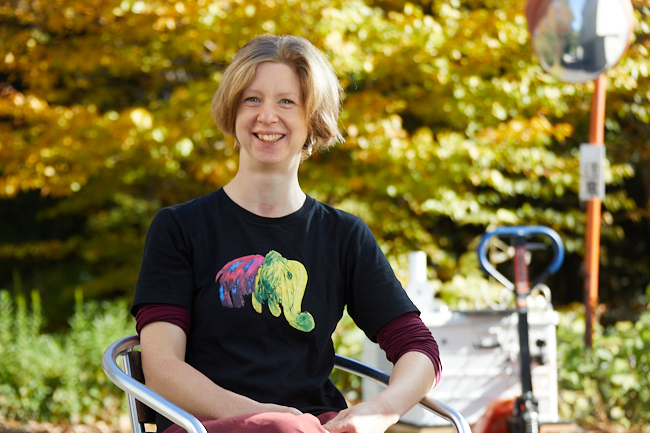受賞のお知らせ~
MUELLER Astrid特別研究員がInternational Global Atmospheric Chemistry (IGAC) projectからEarly Career Poster Presentation Award(優秀賞)を受賞
概要
受賞者氏名: MUELLER Astrid(地球システム領域)
賞の名称: Early Career Poster Presentation Award(優秀賞)
授賞機関: International Global Atmospheric Chemistry (IGAC) project
受賞年月日: 2021年09月30日
受賞対象: How well can satellite derived XCO2 determine seasonal and interannual changes of CO2 over oceans? Evaluation by integrated ship and aircraft observations, presented at the 16th IGAC Scientific Conference, online, 2021

ひとこと
I’m really honored to receive the Early Career Poster Presentation Award for the presentation “How well can satellite derived XCO2 determine seasonal and interannual changes of CO2 over oceans? Evaluation by integrated ship and aircraft observations”. When I received the notice from the Japan National Committee (JNC) of the International Global Atmospheric Chemistry (IGAC) Project about the award, I was astonished as I didn’t expect it. Under the lead of Hiroshi Tanimoto, Research Director of the Earth System Division at the National Institute for Environmental Studies, and together with our international collaborators from the Japan Agency for Marine-Earth Science and Technology (JAMSTEC), Japan, and California Institute of Technology (Caltech), USA, we developed a new method to evaluate satellite observations of column-averaged mixing ratios of carbon dioxide (XCO2) over open ocean areas. These areas are currently inaccessible through established validation network sites. In our approach, we combined cargo ship and passenger aircraft observations which were conducted in cooperation with operator of the private sector. The reduction of greenhouse gases (GHGs) to mitigate the effect of climate change is a major task in the current times. Therefore, we need high quality and high density measurements of GHGs to estimate changes in anthropogenic and natural CO2 emission sources and sinks. With our approach and the help of the private sector, we can rapidly and cost-efficiently extend the temporal and spatial coverage of the new reference dataset over the ocean, not only for XCO2, but in future also for other important trace gases like methane. We expect that our approach contributes to the further improvements of satellite data and therefore, contribute to a better understanding of changes in the carbon cycle in response to climate change. The award is a great inspiration for me to progress this research in future!


